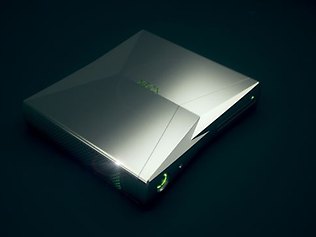
Microsoft is expected to unveil a successor to Xbox 360 videogame consoles next month.
Microsoft sent out invitations yesterday to the May 21 event at its main campus in Redmond, Washington at which its Xbox team will reveal a "new generation."
Industry tracker NPD Group reported last week that as of the end of March, the Xbox 360 had been the top-selling console in the United States for 20 consecutive months.
More than 70 million Xbox 360 consoles have been sold worldwide since they were introduced in November 2005.
A new-generation Xbox would take the field against the latest offerings from Sony and Nintendo.
Sony announced its PlayStation 4 system in February and laid out its vision for the "future of gaming" in a world rich with mobile gadgets and play streamed from the internet cloud.
Sony spoke ambiguously about the device, leaving much to the imagination during a two-hour presentation in New York City.
Industry insiders anticipate learning more from Sony and Microsoft, and perhaps even getting their hands on new consoles, at a premier E3 videogame conference that will take place in Los Angeles in June.
Low-cost or free games on smartphones or tablet computers are increasing the pressure on videogame companies to deliver experiences worth players' time and money.
Features being incorporated into new consoles include games relying on connections to servers in the Internet "cloud" and synching play, movie viewing and social networking with tablets, smartphones and other devices.
A PlaySation App will let iPhones, iPads or Android-powered smartphones or tablets be used as "second screens" augmenting play taking place on televisions connected to PS4 consoles, according to Sony.
Sony said the PS4 would hit the market in time for the year-end holiday season but did not provide details.
The PS4 will succeed PlayStation 3 consoles that began their lifespan in late 2006.
Nintendo released a new-generation Wii U console late last year but said yesterday that the Japanese firm "was not able to maintain the initial sales momentum after the beginning of 2013 due to a delay in the development of subsequent software titles."
Nintendo has been banking on the Wii U to boost its fading fortunes after the original Wii, launched in 2006, proved a huge success as it lured legions of casual gamers with motion-sensing controls.
With the Wii U, Nintendo vowed to start a trend in "asymmetrical play" that gives players using GamePad tablets different in-game perspectives and roles than those using traditional wand controllers.





